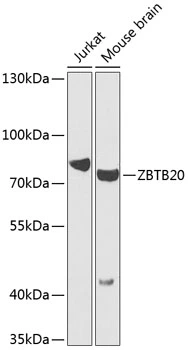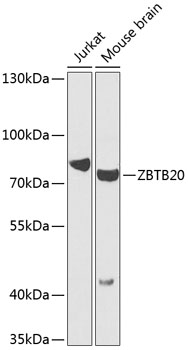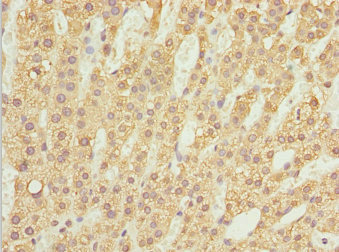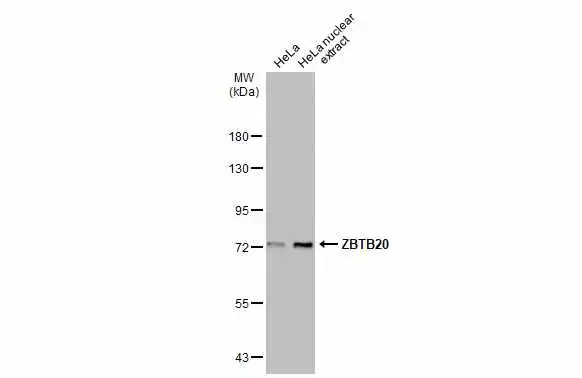
WB analysis of various sample lysates using GTX33588 ZBTB20 antibody. Dilution : 1:1000 Loading : 25μg per lane
ZBTB20 antibody
GTX33588
ApplicationsWestern Blot
Product group Antibodies
ReactivityHuman, Mouse
TargetZBTB20
Overview
- SupplierGeneTex
- Product NameZBTB20 antibody
- Delivery Days Customer9
- Application Supplier NoteWB: 1:500 - 1:2000. *Optimal dilutions/concentrations should be determined by the researcher.Not tested in other applications.
- ApplicationsWestern Blot
- CertificationResearch Use Only
- ClonalityPolyclonal
- ConjugateUnconjugated
- Gene ID26137
- Target nameZBTB20
- Target descriptionzinc finger and BTB domain containing 20
- Target synonymsDPZF, HOF, ODA-8S, PRIMS, ZNF288, zinc finger and BTB domain-containing protein 20, BTB/POZ zinc finger protein DPZF, dendritic cell-derived BTB/POZ zinc finger, zinc finger protein 288
- HostRabbit
- IsotypeIgG
- Protein IDQ9HC78
- Protein NameZinc finger and BTB domain-containing protein 20
- Scientific DescriptionThis gene, which was initially designated as dendritic cell-derived BTB/POZ zinc finger (DPZF), belongs to a family of transcription factors with an N-terminal BTB/POZ domain and a C-terminal DNA-bindng zinc finger domain. The BTB/POZ domain is a hydrophobic region of approximately 120 aa which mediates association with other BTB/POZ domain-containing proteins. This gene acts as a transcriptional repressor and plays a role in many processes including neurogenesis, glucose homeostasis, and postnatal growth. Mutations in this gene have been associated with Primrose syndrome as well as the 3q13.31 microdeletion syndrome. Alternative splicing results in multiple transcript variants encoding distinct isoforms. [provided by RefSeq, Feb 2017]
- ReactivityHuman, Mouse
- Storage Instruction-20°C or -80°C,2°C to 8°C
- UNSPSC41116161





